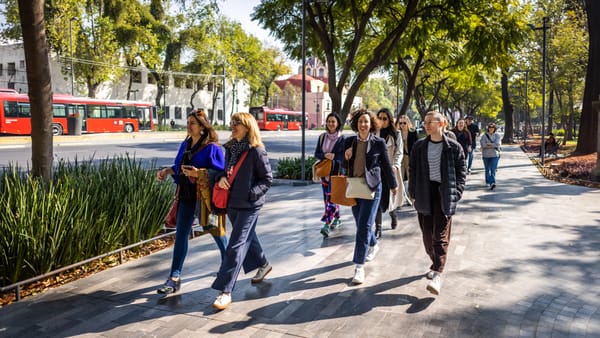Survey of US Arts Organizations Points to Devastating Losses During Pandemic
Based on its findings, Americans for the Arts estimates nearly $5 billion in losses across the US’s 120,492 arts nonprofits.
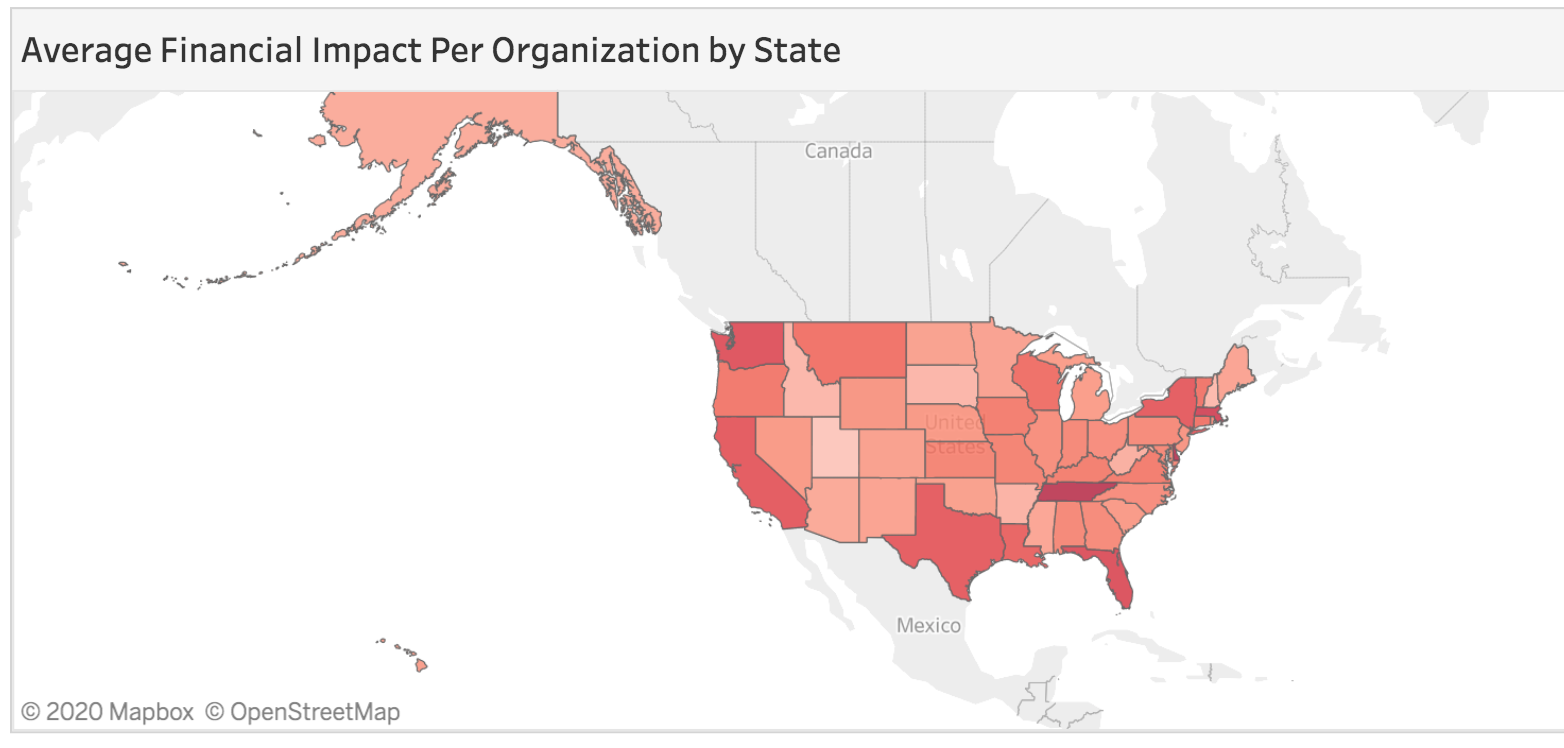
$4.5 billion: that’s the estimated financial toll of the coronavirus outbreak on the US cultural sector to date, calculated based on data from an ongoing survey by Americans for the Arts (AFTA). To put the figure in perspective, it is 22.5 times the combined $200 million allocated to the National Endowment for the Arts, the National Endowment for the Humanities, and the Institute of Museum and Library Services in the stimulus bill passed by Congress two weeks ago.
Gathering responses from 11,004 arts organizations as of this writing, AFTA’s survey looks not simply at dollars lost, but at other important indicators of the sector’s health, such as attendance. Economic impact is measured via three categories: loss of admissions revenue (ticket sales, memberships); loss of non-admissions revenue (gift shop sales, contributions); and unexpected expenses (including spending on cleaning and disinfecting protocols, new technologies, and cancelation fees for postponed events.)
Organizations were asked to estimate responses going back to when the first coronavirus case was reported in the US, on January 20, 2020. The survey was opened to respondents on March 13.
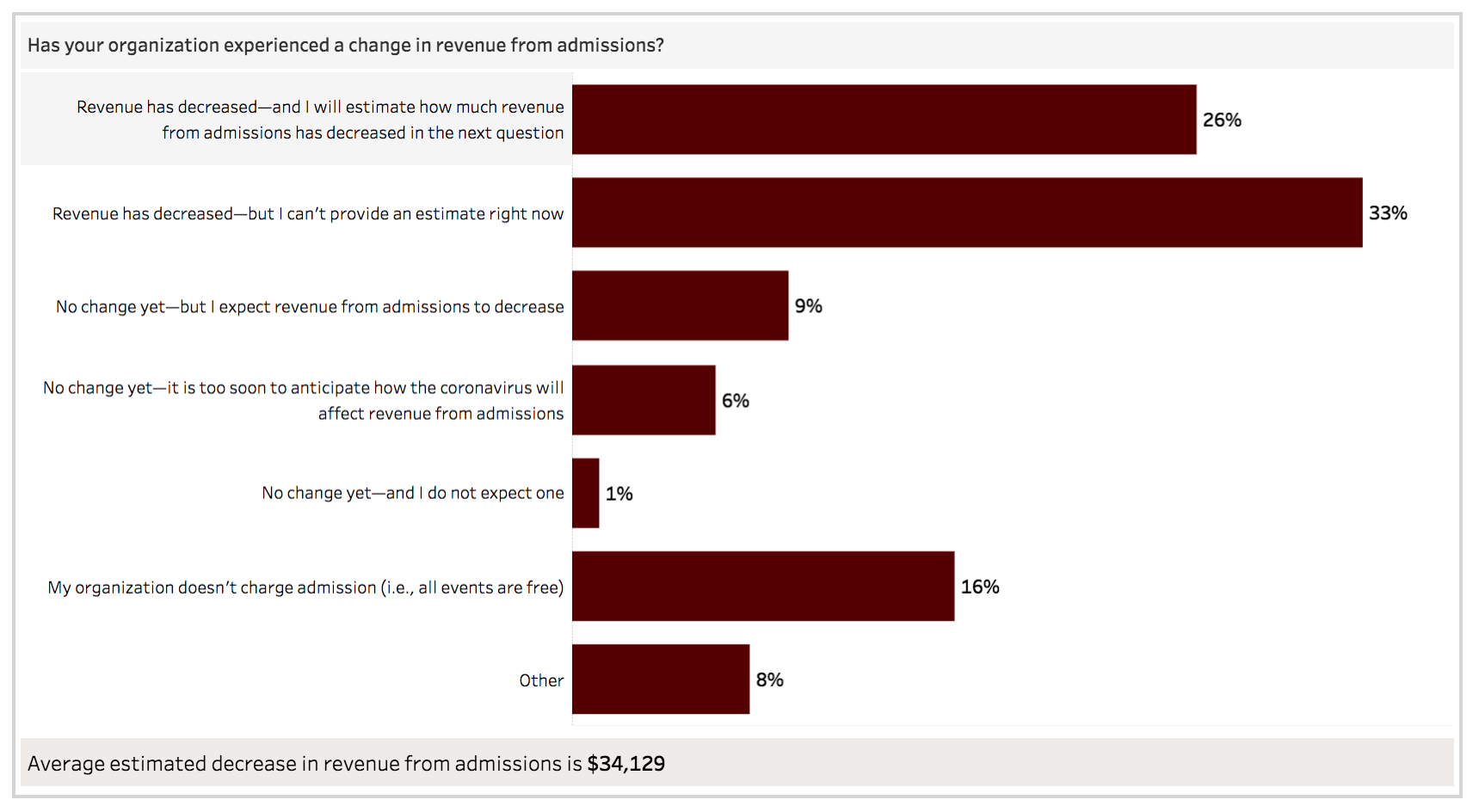
Among the survey’s findings thus far, 94% of organizations reported having to cancel events since the crisis began, suffering a total drop in attendance of more than 55 million people. More than a third have had to dip into their financial reserves, to make up for revenue shortfalls and cover costs incurred during the pandemic.
Even more jarring are respondents’ projections for the future. Nation-wide, more than three-quarters of organizations surveyed said a temporary or permanent reduction in staff would be at least somewhat likely, with 27% considering it would be extremely likely. (Nearly a quarter of respondents said they have already reduced staff, around the same fraction of which has cut salaries.)
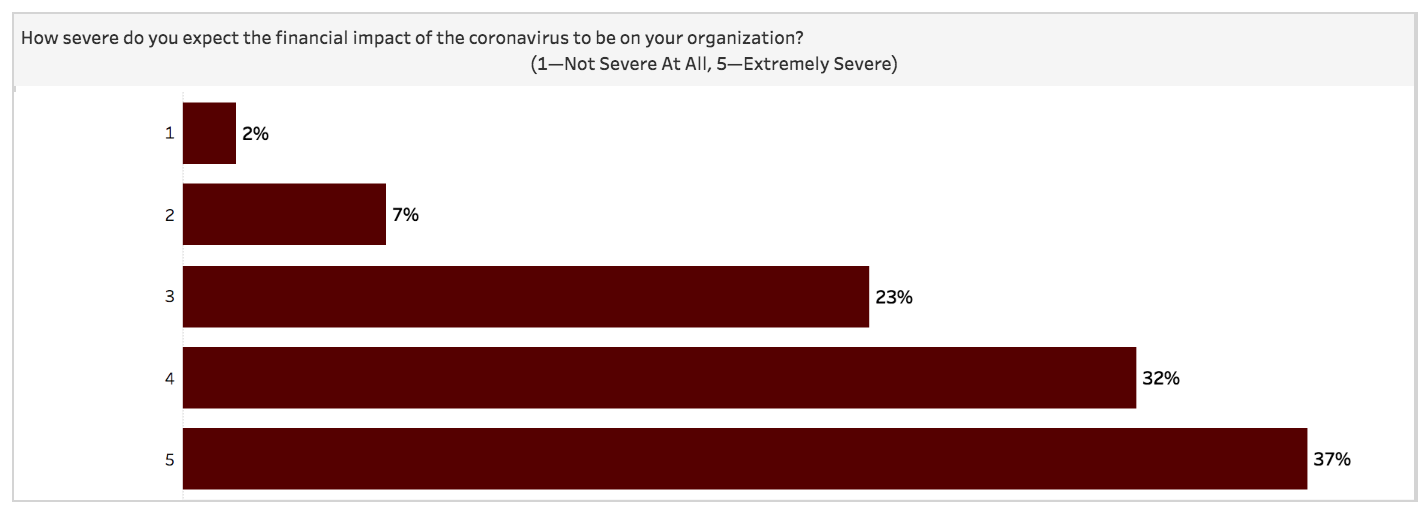
An interactive dashboard on AFTA’s website allows users to click through a map of the country or narrow findings by filters such as city, zip code, discipline, and budget. In New York, for instance, where 427 organizations contributed answers, the reported financial impact totals $6.8 million so far, an average of $14,251 per respondent.
That number may increase, however. AFTA notes that data from organizations who participated in the survey but could not yet provide an estimate of their financial losses was not factored into the current results. As those losses become evident over the next few weeks, organizations are encouraged to return to the survey and report them.
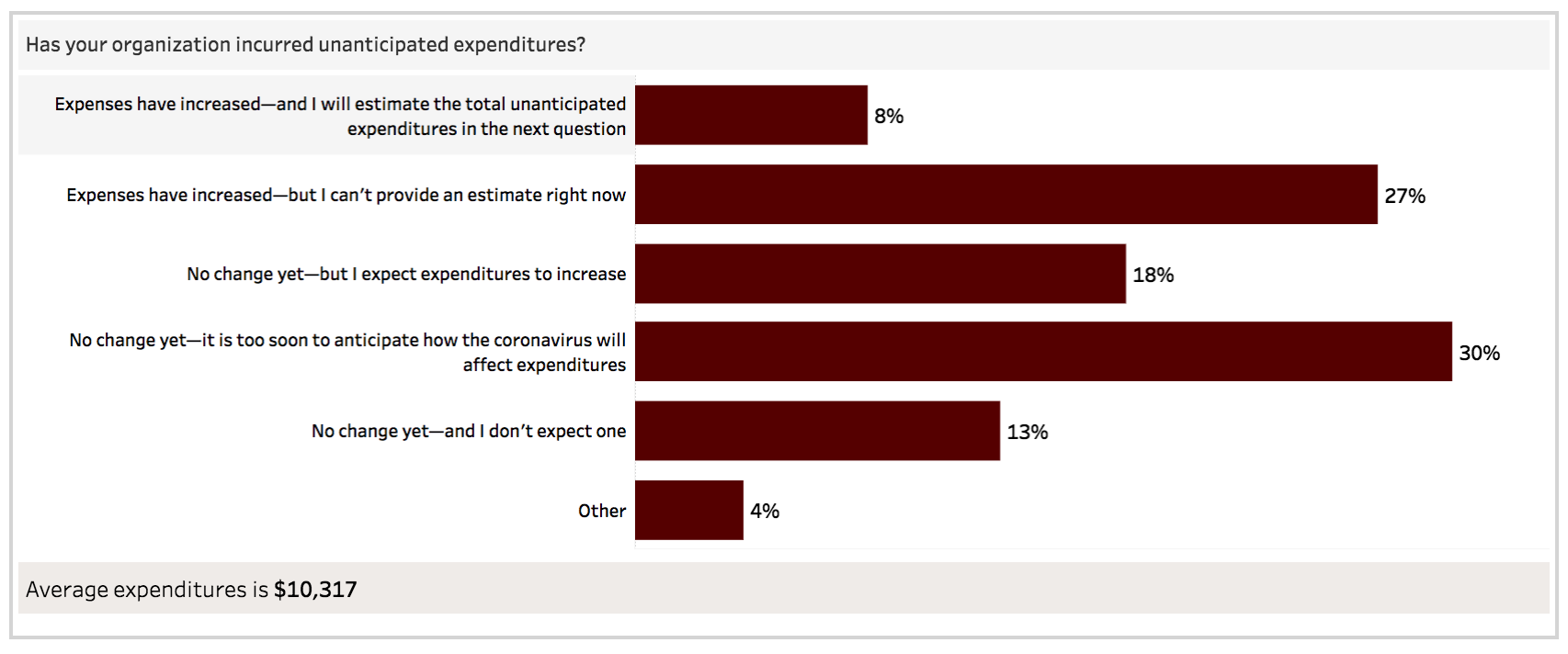
One survey response is less grim: 54% of respondents across the country said they had increased their online presence. The recent flood of online exhibitions, live-streamed performances, and digital resources, overwhelming as it may be, evinces the sector’s high degree of adaptability.
The estimated nearly $5 billion in losses across the cultural sector, however, does not reflect the experience of individuals in the arts — about three quarters of respondents were nonprofit arts and culture organizations, with the balance being commercial arts businesses and only a few individual artists.
A separate effort will be dedicated to measuring the impact on individuals. In its role as research partner for Artist Relief, a direct-to-artist aid initiative launched last week by a coalition of seven national arts funders, AFTA has created an impact survey for creative workers. The results will be summarized in a similar dashboard, with the aims of reaching and informing policy-makers in charge of deciding and distributing aid.
The COVID-19 Impact Survey will remain open indefinitely; organizations interested in reporting their experiences can do so here. AFTA recommends respondents re-report every three to four weeks to accurately capture the growing impact of coronavirus.
Meanwhile, individuals can fill out the related COVID-19 Impact Survey for Artists and Creative Workers, here.



